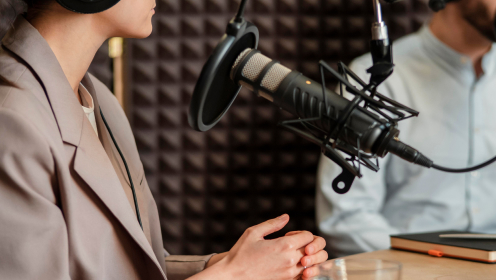The Department of Labor has modified the 2020 Tip Final Rule. View the Q&A below that dives into federal protection for tipped employees.
What are the recent updates announced by the DOL regarding protections for tipped employees?
The Consolidated Appropriations Act of 2018, which was enacted On March 23rd of 2018, amended the Fair Labor Standards Act (FLSA). The FLSA was amended to allow the department of labor to impose civil money penalties when employers keep employees’ tips, regardless of whether the violations were repeated or willful. Nonetheless, the Department of Labor published legal authority to the contrary. The 2020 Tip Final Rule allowed the civil money penalties to be applied only when the violation was repeated or willful.
The 2020 Tip final rule was initially scheduled to go into effect on March 1, 2021. However, once the new administration took over, the Department of Labor delayed the effective date to April 30, 2021. Finally, the law was ultimately delayed with a new effective date of December 31, 2021.
How was the Department of Labor able to create the 2020 Tip Final Rule with contrary views?
The Consolidated Appropriations Act of 2018 granted statutory authority to the Department of Labor to create the 2020 Tip Final Rule as they determined to be “appropriate”. The law was interpreted in an unusual way.
What additional tip protections did the Consolidated Appropriations Act of 2018 enact?
The Act expressly prohibits employers/owners from keeping employees’ tips “for any purposes,” “regardless of whether or not the employer takes a tip credit.” Additionally, the Act prohibits employers from “allowing managers or supervisors to keep any portion of employees’ tips or participate in a tip-pool.”
What specific updates did the Department of Labor recently announce?
After their normal rule-making and comment period, the Department of Labor has withdrawn the provisions in the 2020 Tip Final Rule that allowed the department to assess civil money penalties only for violations that were repeated or willful.
In the case of an employer, manager, or supervisor keeping an employee’s tips or participating in a tip pool, the Department of Labor will be able to assess civil money penalties for a first-time violation that was not willful. The fines are up to $1,162 per violation. The fine for a repeated or willful violation is $2,074 for each violation. In addition to the penalty for the violation, the tips withheld plus an equal amount would be due to the employee.
The recent changes also provide clarification and examples of when a manager or supervisor is allowed to keep tips.
What is considered “willful”?
A “willful” violation occurs when the employer knew OR showed reckless disregard for whether its conduct was prohibited by the FLSA. An employer knew, for example, if they have received advice from an Agent of the Department of Labor to the effect that the conduct in question is not lawful. An employer shows reckless disregard when they fail to make an adequate inquiry about the conduct being compliant with the FLSA.
These are statutory examples of willful and reckless disregard, all the facts and circumstances surrounding a violation would be considered when the Department of Labor gets involved.
WATCH THE FULL VIDEO BELOW!
Does this impact restaurants that are allowed to retain a small percentage of credit card tips to cover the processing fee on those tips?
Neither the 2020 Tip Final Rule nor the updates have an impact on the credit card fees charged to employees. The DOL Field Operations Handbook still contains the section regarding tips charged on credit cards and employer deducting the fees associated. Most states have a law that prohibits this practice.
Do these updates apply to Service Charges?
No, a mandatory charge for service, for example, 15% of the bill, is not a tip. Such charges are part of the employer’s gross receipts just like selling a hamburger for example, and sums distributed to employees from service charges cannot be counted as tips received and increase the regular rate of pay.
Do the updates to the 2020 Tip Final Rule have examples of when a manager or supervisor may keep tips?
The final rule clarifies that a manager or supervisor may keep tips only when the manager or supervisor receives tips directly from customers for service a manager or supervisor directly and “solely” provides.
The final regulations reflect the reality that some managers or supervisors perform work for which they receive tips while ensuring that managers and supervisors do not keep any portion of other employees’ tips because if it is not plausible to attribute the tip earned solely to the manager or supervisor, then that tip does not belong to that manager or supervisor.
Furthermore, an employer may allow a manager or supervisor to keep those tips, and may also require the manager or supervisor to share some portion of the tips with all other eligible employees. Take for example a manager or supervisor that fills in for a sick server and receives tips. The manager or supervisor should tip out the other employees the same way other servers do—bartender, busser, and food runner for example would still receive their fair share of the tips the manager or supervisor earned because their work did not change. If there are any additional tip pools that tipped employees contribute to, for example, a kitchen tip pool, the manager, or supervisor should contribute to the tip pool the same way other employees contribute.
So, we know a manager or supervisor who serves her own tables may keep her own tips, for example. However, when a manager or supervisor simply runs food to a table for which a server is otherwise responsible, she may not keep any portion of the tip the customer leaves for the server, because that tip was not earned solely by the manager or supervisor.
Can a manager or supervisor contribute to a tip pool?
Yes, a manager or supervisor is always allowed to contribute to a tip pool but never allowed to receive tips from a tip pool, because any tip received from a tip pool could not have been solely earned by the manager or supervisor.
When do the changes or updates to the 2020 Tip Final Rule go into effect?
This final rule is effective November 23, 2021.
LISTEN TO THE FULL PODCAST EPISODE BELOW!







